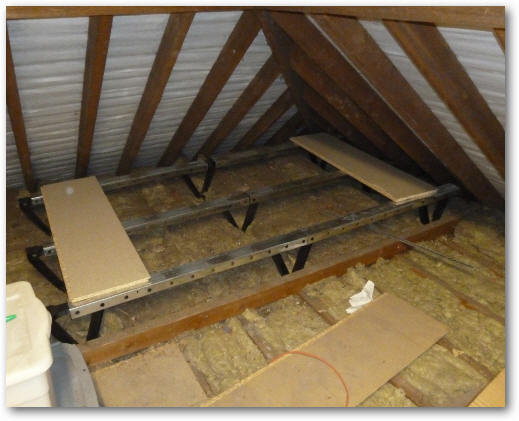How To Install Loft Flooring Legs

Joists are usually spaced about 300mm apart.
How to install loft flooring legs. Screw the loft legs directly into your floor joists. Calculate exactly how many legs you need when you are using loft boards with our easy loft leg calculator. In order to achieve over 100mm of insulation you will need to raise your loft boarding. Quick easy to install.
Developed by a team of engineers and designers the loft leg is strong lightweight and easy to install. Joist spacing 400mm. They should be fixed along every joist the floor will be. Do heed the safety advice detailed below and only attempt the task if you are capable.
A loft can be a cramped and dusty environment to work in therefore gloves and a face mask are also advisable. If not hire a professional. If you want to board your loft follow this step by step guide. Space them 1m apart along the joists.
This can be done using loft legs. Loft storage board pack 1220 x 320 x 18mm. 5 steps for creating energy efficient loft storage. The loft leg is manufactured in the uk from recycled polypropylene to iso9001 standards and has been mechanically tested by independent experts.
Weight allowed on loft conversion floor. Step by step putting down boards to convert your loft into a usable storage space is a simple task which does not normally require any planning permission and should be affordable and manageable even for a diy beginner. This is 5 times more than a loft used for storage on loft boards or loft panels. Where there is a heavy installation in the loft like a water tank that section of floor is always reinforced to allow for the extra weight.
Step 6 install the loft legs. The loft flooring is not designed to carry loads heavier than this. Loft storage stilts are used for creating a raised storage area inside a loft whilst not compromising on thermal efficiency. In fact the horizontal rafter sections in your loft are there solely to hold up the ceiling for the rooms below.
A floor in a loft conversion must be designed to carry a minimum of 150kg per square m.














































